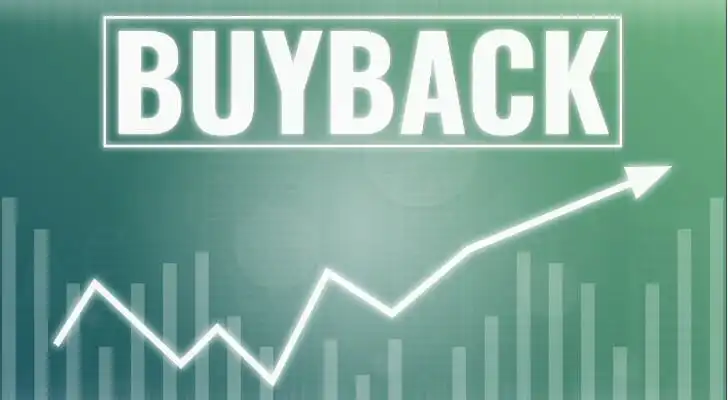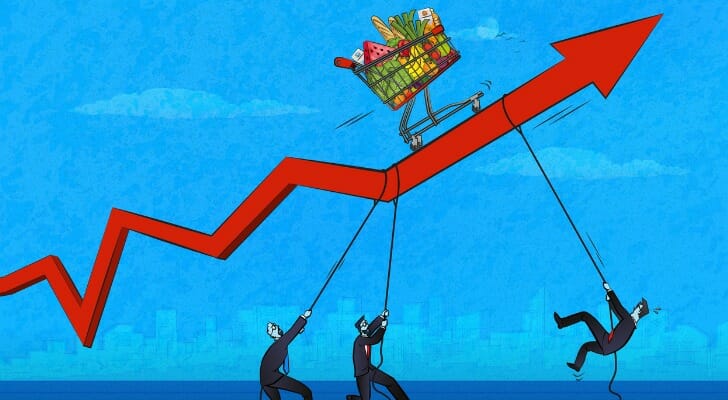 The Inflation Reduction Act of 2022 levies a 1% excise tax on corporate stock buybacks, beginning in 2023. It was added by senators in exchange for not eliminating the carried interest loophole. The tax is expected to boost federal revenue by five times as much as would have been raised by closing the carried interest loophole. How this tax affects corporations – and thus their current and prospective shareholders – depends on how actively corporations buy back their own shares. Consider working with a financial advisor as you build or modify your investment portfolio.
The Inflation Reduction Act of 2022 levies a 1% excise tax on corporate stock buybacks, beginning in 2023. It was added by senators in exchange for not eliminating the carried interest loophole. The tax is expected to boost federal revenue by five times as much as would have been raised by closing the carried interest loophole. How this tax affects corporations – and thus their current and prospective shareholders – depends on how actively corporations buy back their own shares. Consider working with a financial advisor as you build or modify your investment portfolio.
Stock Buybacks: A Primer
Corporate stock buybacks can be voluntary or conducted in open market trading. In the former, a company asks shareholders to return a percentage of their shares voluntarily to the company. Investors decide how many of their shares, if any, they want to sell back and at what price, based on a range determined by the company.
Alternatively, with the open market trading approach. the company buys its own shares on the market, the same as any other investor would, paying the market price for each share. In essence, the company is investing in itself.
While there are numerous reasons a publicly traded company might buy its own shares, three reasons stand out:
- To boost share price. By cutting the supply of their shares, the existing demand for those shares has the effect of raising their price.
- To reduce cash outflows. When investors hold fewer shares, the company needs to pay out fewer dividends, which lets it preserve capital after completing the buyback.
- To increase return on equity and return on assets. By reducing the number of assets on a company’s balance sheet, it increases both returns on equity and return on assets.
Stock Buyback Tax in the Inflation Reduction Act

The Inflation Reduction Act is a trimmed-down version of the $1.85 trillion Build Back Better Act that was narrowly passed by the House on Nov. 19, 2021. It aims to cut gas emissions in less than a decade by roughly 40% and make changes in healthcare to lower drug prescriptions, cap out-of-pocket expenses and extend coverage.
The bill also levies a 1% excise tax on stock buybacks, which the Joint Committee on Taxation estimates will raise $74 billion a year, over five times more revenue than closing the carried interest loophole provision would raise. The Tax Foundation estimates that the tax could raise about $55 billion in revenue, assuming the current pace of buybacks continues unchanged, though the foundation expects that pace to decline as a result of the tax.
Possible Effects on Investors
While it is difficult to predict exactly how corporations will respond to the 1% excise tax on stock buybacks and, thus, how investors will respond, it could be a non-event. Estimates of how this tax will affect corporations and, by extension, investors vary widely, with some analysts dismissing the tax as a negligible factor. However, there are a couple of outcomes that would not be surprising.
More choices for income investors
Stock buybacks are often done by profitable public companies as an alternative to dividends to reward some investors who are ready to sell. With the imposition of the excise tax on stock buybacks it is to be expected that some corporations will respond by reducing buybacks and instead increasing dividends. The Tax Policy Center estimates the tax would result in an uptick in dividend payouts of “roughly 1.5%” because “dividend distributions respond positively to increases in the relative taxation of capital gains.” To the extent that many corporations take this step to avoid the new tax it would increase choices for income-oriented equity investors.
Less demand for Big Tech shares
The biggest corporate share repurchase programs are in Big Tech. Leading the pack are Apple, Microsoft and the corporate owners of Google and Facebook. Given that stock buybacks reduce the number of assets on a company’s balance sheet, it increases returns on equity and return on assets. Buybacks can also result in a higher earnings per share ratio. But without those props, the demand for shares of corporations that spend the most on repurchasing their stock, including Big Tech corporations, could be reduced.
Bottom Line

At current trends, 2022 is shaping up to be the biggest year ever for share repurchases. But given the likelihood that the Inflation Reduction Act becomes law and stock buybacks are taxed, 2023 might see a decline in buybacks. But whatever the effect on corporations, the upshot of the new law could mean more choices for income-oriented equity investors and some reduction in the appeal of Big Tech stocks.
Tips on Investing
- A financial advisor can help you analyze how targeted taxes affect your portfolio. Finding a qualified financial advisor doesn’t have to be hard. SmartAsset’s free tool matches you with up to three financial advisors who serve your area, and you can interview your advisor matches at no cost to decide which one is right for you. If you’re ready to find an advisor who can help you achieve your financial goals, get started now.
- See how the gains you make when selling stocks will be impacted by capital gains taxes in your location by using the no-cost SmartAsset capital gains calculator.
Photo credit: ©iStock.com/Vladimir Zakharov, ©iStock.com/Bingol, ©iStock.com/dkfielding